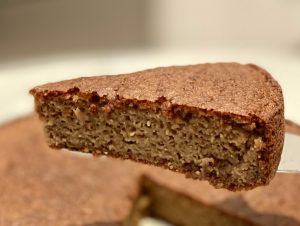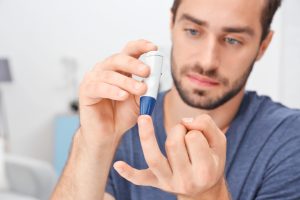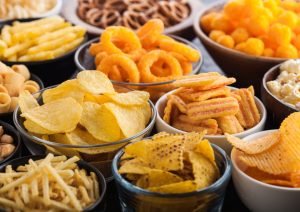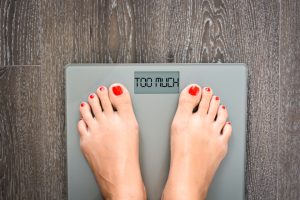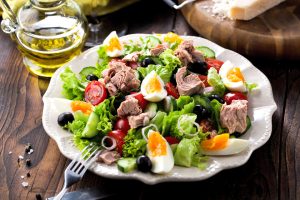What Are the Benefits of Omega-3?
Hello Everyone! It’s time to address the benefits of the amazing, essential omega-3 fatty acids!
So many people ask, ‘What about omega-6? Omega-9? Aren’t they essential, too?’.
Yes, omega-6 and omega-9 fatty acids are essential, but there is a reason why we need to put our focus on omega-3.
In this post, I will talk about the importance of omega-3! I have barely touched the surface – but it’s a long read! Be prepared.
Facts About Omega-3 Fatty Acids
What Are Omega-3 Fatty Acids?
What Makes Omega-3 So Special?
Does Omega-3 Reduce Chronic Inflammation?
Does Medication Treat Inflammation?
Does Omega-3 Help the Immune System?
How Does Omega-3 Help the Brain?
Is Omega-3 Good for Fertility?
How Does Omega-3 Help the Fetus?
Is There Omega-3 in Breastmilk?
Is Omega-3 Good for ADHD Treatment?
Is Omega-3 Good for the Heart?
How Does Omega-3 Help Your Eyes?
Is Omega-3 Good for Your Skin?
Does Omega-3 Act as an Anti-inflammatory?
Are Omega-3 Supplements Enough?
Do We All Need Omega-3?
Facts About Omega-3 Fatty Acids
First, the human body needs a good omega-6 and omega-3 (2:1) ratio in the diet for proper body functioning. They must be sourced because the body cannot produce these essential fatty acids.
For eons, the human diet existed with a perfect ratio of omega-6 and omega-3, as humans consumed all foods accessible to them from nature.
Fast forward 150 years, and the balance of omega-6 and omega-3 has changed drastically. This is down to modern agriculture and the Western diet.
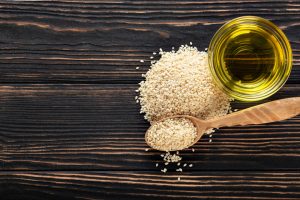
Today, people eat excessive amounts of omega-6, trans fatty acids, and saturated fat and have a deficiency in omega-3, putting the ratio at around 15:1 (6:3). This is known as a disturbed essential fatty acid ratio.
A higher ratio of omega-6 (which is not bad for you) and insufficient essential omega-3 have an inflammatory effect and fuel chronic diseases, affecting the brain, heart, and all over the body.
For instance, Crohn’s, ulcerative colitis, lupus, arthritis, cancer, and other inflammatory and autoimmune diseases are characterized by an increased level of the inflammatory marker interleukin 1 (IL-1) and the proinflammatory leukotriene LTB (4), which is produced by the presence of omega-6.
Omega-3 will contribute to balancing inflammation.
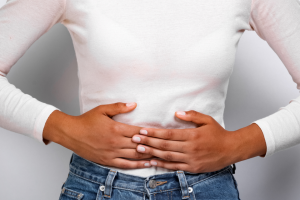
Chronic diseases (like inflammatory bowel disease) are multifactorial (genetic, environment, microbiota, immune response…), which means they will respond positively to Eat Burn Sleep’s 360-degree anti-inflammatory lifestyle. EBS is packed with inflammation-reducing nutrition, compounds, exercises, and techniques.
What Are Omega-3 Fatty Acids?
Omega-3 Fatty Acids (also known as essential fatty acids: EFAs) are polyunsaturated fats (PUFAs). There are three main omega-3s:
- Alpha-linolenic acid (ALA) is the most common, found in vegetable oils, flax seeds and flax oils, nuts, leafy vegetables, and the fats of grass-fed animals.
- Eicosapentaenoic acid (EPA) and docosahexaenoic acid (DHA) come from fish (marine omega-3s), mostly.
Alpha-linolenic acid (ALA) needs to be converted in the body to EPA and DHA to EPA and DHA in the body.
Linolenic acid is easily destroyed by cooking and food processing and contains hydrogenated (solid, hardened) polyunsaturated fats, so a new, whole source is essential.
The healthiest effects come from EPA and DHA.
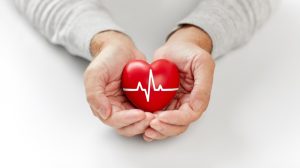
What Makes Omega-3 So Special?
Essential for the cardiovascular system, immune system, nervous system, brain, and skin, Omega-3 fatty acids are an integral part of the function of cell receptors in cell membranes throughout the body.
Cell membranes have the functions of being a barrier, protecting the interior of a cell, and also keeping unwanted substances out.
They also control the passage of essential nutrients going in and export cell waste going out.

Omega-3 plays a significant part in the organization of every cell in the body. For instance, omega-3s assist with inflammatory processes, protecting immune health, nervous system regulation, blood clotting, blood pressure, glucose tolerance, etc.
Omega-3 fatty acids bind to receptors in cells that regulate genetic function and play a significant role in the decreased expression of genes involved in inflammatory pathways, for instance!
Does Omega-3 Reduce Chronic Inflammation?
Altering the ratio of fatty acids in cells by adding the therapeutic agents of EPA and DHA and an anti-inflammatory lifestyle are successful treatments in managing and reducing inflammatory conditions.

PCOS is successfully treated on Eat Burn Sleep, for instance.
Some chronic inflammation conditions that benefit from a good omega-6/3 ratio as part of an anti-inflammatory lifestyle are:
-
- *Inflammatory bowel diseases: Crohn’s, colitis, and diverticulitis
- *Autoimmune diseases: celiac, Hashimoto’s, Grave’s, multiple sclerosis
- *Rheumatoid arthritis (inhibition of the inflammatory cytokines responsible for arthritic pain)
- *Cardiovascular disease
- *Neurological disease – studies show that people with depression and neurodegenerative diseases like Alzheimer’s have DHA deficiency
- *Hyperactivity and ADHD: multiple studies worldwide show that a good omega-3/6 ratio offers great promise as a suitable therapy for ADHD.
- *PCOS
- *Endometriosis
- *Candida
- *Kidney disease
- *AdulAsthmama
- *Allergies
- *Obesity
- *Type-1 diabetes*
- *Psoriasis
- *Eczema
- *Migraines
- *Cancer
- *Lupus
- *Skin diseases
- *Eye diseases

Losing weight is a common side effect of lowering inflammation in the Eat Burn Sleep way.
Does Medication Treat Inflammation?
One of the challenges for many people with inflammatory conditions is taking medication for their chronic inflammation.
Maybe painkillers and steroids, and then antibiotics for infections. Invariably, the medication masks the symptoms but does not treat the source of the inflammation.
What also happens is that the medications are so strong that they irritate the gut lining and overload the liver.
An extra load of toxins in the body via medication contributes to other diseases, pain, and inflammation.
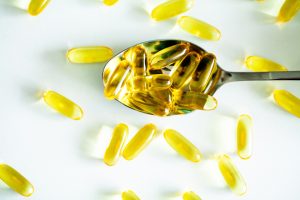
Taking omega-3 is not going to eradicate a less-than-optimal health situation. There is more to it than that.
Please talk with your doctor about joining doctors worldwide in working with Eat Burn Sleep as part of an optimum health lifestyle, treating the cause and not the symptom.
Does Omega-3 Help the Immune System?
A body of evidence shows the positive role of Omega-3’s EPA and DHA in immune health.
Omega-3s help your immune system elicit a robust immune response in the presence of bacteria, pathogens, and viruses by impacting macrophage (white blood cell) function, which plays a vital role in the process.
Scientists have found that omega-3 can help remodel the cell membranes in immune cells (T-cells) and ultimately strengthen them.

Chronic inflammation is a dysregulation of the immune system. 70% of our immune cells reside in the gut.
So, an inflammation-fighting lifestyle begins with gut-healthy food and balancing the microbiome.
How Does Omega-3 Help the Brain?
Omega-3 optimizes brain function.
Studies show that Omega-3 (DHA) is beneficial in various neurological and neurodegenerative conditions, including a developing brain.
You see, DHA is the most important long-chain omega-3 fatty acid for brain development and plays an essential role in neurotransmitter release, cellular membrane function, and fluidity.

A high omega-6/3 ratio is associated with depression, anxiety, and mood disorders because of the gut dysbiosis (disrupted gut bacteria) it causes. There is a bidirectional link between the gut and the brain.
This information also supports why an unbalanced, unhealthy, inflammatory diet (rich in omega-6 and not enough omega-3) affects the brain and mind.
Also, an aging brain is prone to inflammation and oxidative alterations.
When lifestyle changes affect proinflammatory cytokine release in the brain and have been enriched with omega-3, studies have shown that the anti-inflammatory effect has positively impacted neurodegenerative disorders like Alzheimer’s and Parkinson’s.
The way to reduce inflammation, depression, mood disorders, and neurodegenerative disorders in the brain, as I always say, starts with the gut!

Is Omega-3 Good for Fertility?
Omega-3-rich foods form a portion of any good anti-inflammatory diet and contribute to fertility as long as a 360-degree anti-inflammatory lifestyle is followed.
Again, no supplement or meal plan will perform miracles if inflammatory lifestyle habits remain in place and a good ratio of omega-6/3 and other nutrients from a multitude of foods to help absorption isn’t in place.
Inflammation needs to be treated at the source, and it takes anti-inflammatory food, anti-inflammatory thinking, and anti-inflammatory movement.
See my article about Help with Fertility and Having a Baby.

Eat Burn Sleep has so many babies!
I say it a lot, but it is absolutely fantastic news every time I hear about fertility being improved, healthier pregnancies, and a new baby being born due to following the Eat Burn Sleep lifestyle.
How Does Omega-3 Help the Fetus?
Omega-3 promotes fetal eye and brain development, and the brain develops in the first trimester and continues throughout pregnancy.
DHA is the most critical PUFA in the central nervous system and accumulates in the last trimester of pregnancy and for the first 6-10 months after birth.
It is recommended that a pregnant and lactating mother consumes 200mg a day (check with your pediatrician) of omega-3 for optimum childhood eye and brain development.
However, studies show that the average intake of DHA in pregnant and lactating women is only a quarter of the recommended omega-3.
A high omega-6/3 ratio could also explain postpartum depression.
So, if you are pregnant, you must have long-chain omega-3 PUFA intake with nutrient-rich foods to allow complete absorption.

Is There Omega-3 in Breastmilk?
Breastmilk contains omega-3 (DHA) and optimizes infant health; unfortunately, not all formulas contain DHA.
DHA assists with behavior, visuomotor coordination, height, head measurement improvements, and IQ.
If breastfeeding isn’t an option, don’t worry and check with your pediatrician about accessing recommended long-chain PUFA-fortified (AA and DHA) baby formula or other options.

Omega-3 helps eye and brain development in children.
Is Omega-3 Good for ADHD Treatment?
Studies have shown that a deficiency of omega-3 in children transpires as hyperactivity-impulsivity, temper tantrums, sleep difficulties, behavioral and learning problems, and anxiety.
When long-chain DHA was supplemented, significant reductions in ADHD occurred.
Considering the effects of omega-3 and an optimum health meal plan, it is no wonder that children are benefiting from the meals on the Eat Burn Sleep anti-inflammatory lifestyle as part of their healthy diets. (Suggestions are made in recipes where to adapt the anti-inflammatory meals for children).
A good omega-6/3 ratio is good for assisting in developing brains and overall IQ.

Is Omega-3 Good for the Heart?
A lifestyle rich in anti-inflammatory foods, nutrients, omega-6/3 ratio, anti-inflammatory movement, and stress-reducing tools promotes cardiovascular health.
Omega-3 (EPA and DHA), as a component of an anti-inflammatory lifestyle, have been shown to reduce the risk of cardiac events.
Reducing inflammation in the body will reduce weight, decrease body fat, reduce resting blood pressure, contribute to maintaining average blood triglyceride concentrations, and all heart-healthy improvements.
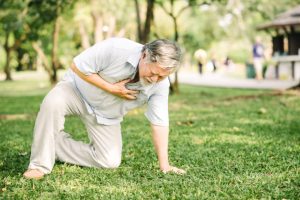
Lowering inflammation reduces the risk of heart disease, heart attacks, and strokes.
How Does Omega-3 Help Your Eyes?
Omega-3 promotes good eye health.
A low inflammation lifestyle with a good ratio of omega-6/3 fatty acids is essential for regulating eye health.
It reduces the risk of developing macular degeneration, dry eye disease, and glaucoma.
For instance, the inflammation-lowering effects reduce symptoms and signs by modulating ocular surface inflammation and improving tear-lipid profiles.
Is Omega-3 Good for Your Skin?
Omega-3 is excellent for your skin, taken alongside antioxidants and other vital nutrients and inflammation-reducing components from an anti-inflammatory lifestyle.
Every cell membrane is composed partly of essential fats, and your skin comprises countless cells. The cell membranes’ fatty acid content is crucial in keeping cell membranes in control of what goes in and out of the cells.
Simply put, without enough fatty acids, they cannot retain water; thus, skin plumpness is lost.

Omega-3 and an anti-inflammatory lifestyle assist with skin damage repair, wound healing, smoothing, softening skin, and skin protection.
Of course, there is much more to it than that because oxidative damage limitation and optimum liver and digestive tract health come into play here, too.
Does Omega-3 Act as an Anti-inflammatory?
When included in a whole 360 anti-inflammatory lifestyle, omega-3 assists with the following:
- *Anti-inflammatory effects
- *Immune health
- *Heart health
- *Eye health
- *Chronic disease protection
- *Hormone regulation
- *Increased fertility for both men and women
- *Mental wellness: MMDs, depression, and anxiety management
- *Brain function: IQ, cognitive functioning, memory, concentration, and learning
- *Healthy Pregnancy
- *Fetal eye and brain development
- *Allergy resistance
- *Skin protection and healing
- *Sleep and relaxation
- *Athletic performance and recovery
- *Degenerative disease protection
- *Menopause
- *Sleep (a build-up of DHA promotes melatonin, which promotes sleep).
Are Omega-3 Supplements Enough?
I always advocate for obtaining essential nutrients through foods as the best option, if possible.

The right gut-healthy foods with superior bioavailability are the most nurturing healers for the body, reducing inflammation.
You see, other minerals and vitamins come from foods that aid in the absorption of omega-3, like vitamin B6, magnesium, and many others.
Taking supplements alone lacks the key interactions between the fatty acids and other nutritional components of healing omega-3-rich foods.
However, there are recommended supplements and brands in the Personalized Advice section on the Eat Burn Sleep platform – for the treatment, protection, and recovery of many conditions – to be taken alongside this anti-inflammatory protocol, also on the Yalda Loves page.

You cannot eat nurturing, inflammation-reducing foods and expect change when you inflame your body with stress, inflammatory exercise, unhealthy habits, and triggers.
Also, many supplements are not always what you think they are, nor do we know the long-term effects.
See my video (scroll down in the videos section) on the shocking findings about supplements and the FDA.
Always get supplement advice from a qualified nutritionist.
Do We All Need Omega-3?
So the conclusion to why we should all be thinking about getting the correct ratio of omega-6/3 is evident.
Getting an excellent omega-6/3 ratio affects us from when we are in the womb to an older age.
Needless to say, a lifestyle change is necessary for many people for optimum health – in all areas of their life.
The inflammation-reducing powers of this 360-degree anti-inflammatory lifestyle (rich in omega-3 and other powerhouse microbiota-rich, inflammation-fighting nutrients, components, and tools) address those needs.
Members, I know that you are enjoying all of the omega-3-rich desserts, breads, and breakfasts like these:
Gut-healthy Omega-3 rich Bread
Here’s a delicious, quick omega-3-rich taster lunch recipe for our non-members to enjoy: Thai Fish Cakes.
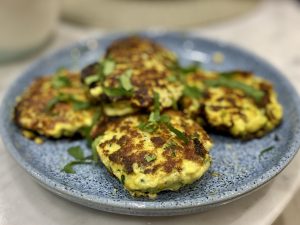
You may be interested in my Instagram Live with Jo from Minami Health about Omega 3, 6, and 9. It is so fascinating!
Here are the omega-3 and other products that I use.
I hope that your day is lovely!









